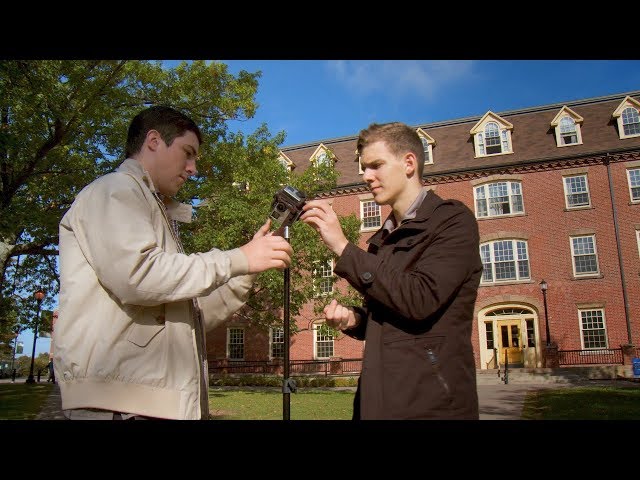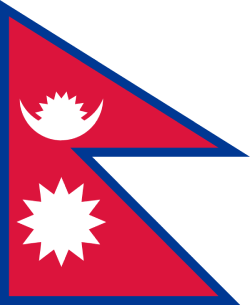The University of Prince Edward Island (PEI) is a public university located in Charlottetown, the capital city of Prince Edward Island, Canada. Established in 1969, it amalgamated Prince of Wales College and St. Dunstan’s University. PEI is known for its strong emphasis on teaching, research, and community engagement. The university offers a wide range of undergraduate, graduate, and professional programs, fostering a dynamic and inclusive learning environment.
The Robertson Library is a vital resource for the PEI community, offering extensive collections of books, journals, and digital resources. The H. L. Cudmore Centre for Innovation and Collaboration houses modern classrooms and collaborative spaces, fostering innovation and teamwork.
The Science and Research Complex supports cutting-edge scientific exploration, while the Chi-Wan Young Sports Centre promotes health and wellness. On-campus housing options include Andrew Hall, Bernardine Hall, and Blanchard Hall.
Dining services cater to diverse dietary preferences, with the Wanda Wyatt Dining Hall offering vegetarian, vegan, and gluten-free options. The Student Union Building is the heart of student activities, featuring meeting rooms, lounges, and event spaces.
PEI offers over 100 student-run clubs and societies, fostering a sense of community and school spirit among students. Regular events and festivals bring the campus community together, while sports teams and the Chi-Wan Young Sports Centre support students’ interests.
PEI also encourages volunteer work and service-learning projects, and offers numerous programs for student leadership, including positions in the Student Union and peer mentoring. PEI offers a supportive campus environment that balances academics, extracurricular activities, and personal development.
Services include academic advising, counseling, career guidance, health and wellness programs, and accessibility support. The Career Services Centre provides resources for job searches, internships, and interviews. The Student Health Centre provides medical care and wellness programs. The Accessibility Services Office ensures students with disabilities have the necessary accommodations.
If you’re in Nepal and aspiring to study in Canada, Goreto Educational Consultancy is your ideal partner. We are renowned as the leading consultancy to Study in Canada from Nepal. Our team assists you through the entire application process, ensuring a smooth transition and successful settlement in Canada for your academic pursuits.
Honours Bachelor Degree from the University of Prince Edward Island (PEI)- Apply here
Course Description (Paramedicine)
The Paramedicine program at the University of Prince Edward Island (PEI) is a comprehensive course designed to train students in providing advanced pre-hospital emergency medical care. The program combines theoretical knowledge with practical skills to prepare students for the challenges of a paramedic career.
Key components include an introduction to the role of paramedics, a healthcare system overview, legal and ethical considerations, human anatomy and physiology, emergency medical procedures, pharmacology for paramedics, clinical placements, and real-world experience in various emergency medical settings.
Students learn about the legal responsibilities, ethical dilemmas, and physiological impact of medical conditions. They also gain hands-on experience in advanced life support, trauma management, simulation and real-world scenarios, and pharmacodynamics.
Clinical placements provide students with real-world experience in hospitals, ambulance services, and other emergency medical settings, allowing them to apply their knowledge and skills in real-life situations.
Program Details (Paramedicine)
The Paramedicine program at the University of Prince Edward Island (PEI) is a two-year program that combines classroom instruction and practical training to provide students with a comprehensive understanding of emergency medical services. The program covers essential topics such as anatomy and physiology, medical emergencies, trauma management, pharmacology, and patient assessment.
Graduates are prepared to take certification exams and gain practical experience in various medical settings, including hospitals, ambulance services, and specialized settings like fire departments and air medical services. Career opportunities include working as paramedics in ambulance services, fire departments, hospitals, and other emergency medical services.
PEI offers a supportive environment with excellent facilities, a vibrant student life, and robust support services, ensuring students have the resources and opportunities needed for academic and personal success. The Paramedicine program equips students with the knowledge, skills, and experience required to become competent and confident paramedics.
Course Overview
| Program Code | |
|---|---|
| Program Category Name | Health, Wellness, and Sciences |
| Program Level | Bachelors |
| Campus | Charlottetown Campus |
| Duration | 2 year(s) |
| Fees in CAD | CAD$ 13860 |
English Language Requirements:
| READING | WRITING | LISTENING | SPEAKING | OVERALL | |
| IELTS | 6.0 | 6.0 | 5.5 | 5.5 | 6.0 |
| TOEFL | 19 | 19 | 19 | 19 | 80 |
| PTE | 55 | 55 | 55 | 55 | 60 |
Course Requirements
While at UPEI, students in the Bachelor of Applied Health in Paramedicine program will take 20 courses. Of these, 16 are required (core) courses and the rest will be electives. The core courses will primarily be in Biology, with four advanced courses in Paramedicine:
| Course Level | Course Code | Course Title |
| 1000-level | UPEI 1010, OR UPEI 1020, OR UPEI 1030 | First Year Experience |
| BIO 1310 | Introduction to Cell and Molecular Biology | |
| CHEM 1110 | General Chemistry I | |
| IKE 1040 | Indigenous Teachings of Turtle Island | |
| STAT 1210, OR STAT 1910 | Introductory Statistics OR Introduction to Probability and Statistics | |
| 2000-level | BIO 2210 | Cell Biology |
| BIO 2060 | Microbiology | |
| BIO 2240 | Human Genetics | |
| BIO 2250 | Human Biochemistry | |
| 3000-level | BIO 3310 | Research Methods and Communications in Biology |
| BIO 3750 | Medical Microbiology | |
| 4000-level | BIO 4750, OR BIO 4050 | Basic and Clinical Immunology OR Medical Biology |
| PARA 4010 | Health Promotion, Planning, and Evaluation | |
| PARA 4020 | Disaster Medicine and Crisis Response | |
| PARA 4030 | Methods in Evidence-based Clinical Practice | |
| PARA 4040 | Current Issues in Paramedicine |
First Year
| Course Code | Course Title |
| Biology 1310 | Introduction to Cell and Molecular Biology |
| Biology 2060 | Microbiology |
| Biology 2210 | Cell Biology |
| Biology 2240 | Human Genetics |
| Biology 2250 | Human Biochemistry |
| Chemistry 1110 | General Chemistry I |
| IKE 1040 | Indigenous Teachings of Turtle Island |
| Paramedicine 4010 | Health Promotion, Planning, and Evaluation |
| UPEI 1010, OR UPEI 1020, OR UPEI 1030 | First Year Experience |
| 1 Elective | Recommended from the list below |
Second Year
| Course Code | Course Title |
| Biology 1310 | Introduction to Cell and Molecular Biology |
| Biology 2060 | Microbiology |
| Biology 2210 | Cell Biology |
| Biology 2240 | Human Genetics |
| Biology 2250 | Human Biochemistry |
| Chemistry 1110 | General Chemistry I |
| IKE 1040 | Indigenous Teachings of Turtle Island |
| Paramedicine 4010 | Health Promotion, Planning, and Evaluation |
| UPEI 1010, OR UPEI 1020, OR UPEI 1030 | First Year Experience |
| 1 Elective | Recommended from the list below |
| Biology 3310 | Research Methods and Communications in Biology |
| Biology 3750 | Medical Microbiology |
| Biology 4050 OR 4750 | Medical Biology OR Basic and Clinical Immunology |
| Paramedicine 4020 | Disaster Medicine and Crisis Response |
| Paramedicine 4030 | Methods in Evidence-based Clinical Practice |
| Paramedicine 4040 | Current Issues in Paramedicine |
| Statistics 1210 OR 1910 | Introductory Statistics OR Introduction to Probability and Statistics |
| 3 Electives | For a total of 120 semester hours of credit |
| Paramedicine 4900 AND 2 Electives | Advanced Research and Thesis in Paramedicine AND 2 Electives (for a total of 126 semester hours of credit for the Honours designation) |
Academic Qualifications and Requirements
To enroll in this Bachelor Honours Bachelor Of Science In Biotechnology, you must possess the following qualifications and minimum marks.
POSTGRADUATE PROGRAMS
– Bachelor’s degree with 60% or above in the relevant course
– IELTS score of 6.5 with no individual score less than 6.0. (Recommended IELTS 7.0 not less than 6.0 and 65 -70 % or above in Degree)
ADVANCED DIP/ DIPLOMA PROGRAMS
– IELTS score of 6.0 with no individual score less than 5.5.
– Students with 5.5 bands in Writing and reading are not eligible for admission. (Recommended IELTS 6.5 not less than 6.0 and 65 -70 % or above in 12th Grade)
BACHELOR DEGREE PROGRAMS
– IELTS score of 6.5 with no individual score less than 6.0.
– Minimum 65% average scores required.
Required Document Lists
- Certificate of completion of 10+2 standard from a recognized board
- Statement of Purpose
- Letters of Recommendation
- Writing Sample (if required)
- IELTS/TOEFL scorecards
- CV or Resume
- Proof of funding
- Passport
- Student visa
Career Options for Graduates
- Paramedic
- Advanced Care Paramedic
- Firefighter-Paramedic
- Emergency Room Technician
- Critical Care Paramedic
- Flight Paramedic
- Industrial Paramedic
- Community Paramedic
- Disaster Response Paramedic
- Paramedic Instructor
- Clinical Educator
- Research Paramedic
- Health Services Manager
Fundamental Job Skills
Paramedics need a comprehensive skill set to effectively respond to emergencies and provide high-quality care. Here are some of the fundamental job skills in paramedicine:
1. Medical Knowledge and Clinical Skills
- Anatomy and Physiology: Understanding the human body, its systems, and functions.
- Advanced Life Support (ALS): Proficiency in performing advanced emergency procedures like intubation, defibrillation, and intravenous medication administration.
- Trauma Management: Assessing and treating traumatic injuries, such as fractures, burns, and severe bleeding.
- Medical Emergency Response: Identifying and managing medical emergencies, including cardiac arrests, respiratory distress, and diabetic crises.
- Pharmacology: Knowledge of medications used in emergency care, including their indications, contraindications, and administration methods.
2. Patient Assessment
- Vital Signs Monitoring: Measuring and interpreting vital signs such as blood pressure, pulse, respiration rate, and oxygen saturation.
- History Taking: Gathering patient medical history and understanding the context of the emergency.
- Physical Examination: Conducting a thorough physical examination to identify symptoms and potential medical conditions.
3. Technical Skills
- Use of Medical Equipment: Operating medical devices such as ECG monitors, defibrillators, ventilators, and intravenous infusion pumps.
- Wound Care and Management: Cleaning, dressing, and managing wounds to prevent infection and promote healing.
- Airway Management: Ensuring airway patency using techniques like suctioning, airway adjuncts, and advanced procedures like intubation.
4. Communication Skills
- Patient Communication: Explaining procedures and providing reassurance to patients and their families in stressful situations.
- Team Coordination: Collaborating with other emergency responders, healthcare professionals, and law enforcement.
- Documentation: Accurately recording patient information, treatments provided, and patient response to interventions.
5. Problem-solving and Critical Thinking
- Rapid Decision-Making: Making quick, informed decisions in high-pressure situations to ensure patient safety and effective care.
- Situation Assessment: Evaluating the scene of an emergency to determine the best course of action.
- Resource Management: Efficiently utilizing available resources and adapting to changing circumstances.
6. Physical Fitness
- Strength and Stamina: Maintaining physical fitness to perform physically demanding tasks such as lifting patients, performing CPR, and moving equipment.
- Dexterity and Coordination: Performing precise procedures and handling medical instruments with accuracy.
7. Emotional Resilience
- Stress Management: Handling high-stress situations calmly and effectively.
- Compassion and Empathy: Providing compassionate care and emotional support to patients and their families.
- Professionalism: Maintaining composure, professionalism, and ethical standards in all interactions.
8. Cultural Competence
- Understanding Diversity: Respecting and effectively interacting with patients from diverse cultural backgrounds.
- Indigenous Teachings: Incorporating knowledge of indigenous health practices and teachings, such as those from the Indigenous Teachings of Turtle Island course, into patient care.
By developing and honing these skills, paramedics can provide exceptional care, respond effectively to emergencies, and ensure the well-being of their patients.
Top Degrees
Program Details
Health, Wellness and Sciences
Geology - Physics/Mathematics(Bachelor Degree)
Prog Code:
N/A
Duration:
4 year(s)
Part time jobs:
yes
PGWP eligibility:
yes
IELTS:
6.0
TOEFL:
80
PTE:
60
*Note:
Fees given in canadian dollars.
Health, Wellness and Sciences
Cognitive Neuroscience(Bachelor Degree)
Prog Code:
N/A
Duration:
4 year(s)
Part time jobs:
yes
PGWP eligibility:
yes
IELTS:
6.0
TOEFL:
80
PTE:
60
*Note:
Fees given in canadian dollars.
Prog Code:
N/A
Duration:
4 year(s)
Part time jobs:
yes
PGWP eligibility:
yes
IELTS:
6.0
TOEFL:
80
PTE:
60
*Note:
Fees given in canadian dollars.
Health, Wellness and Sciences
Mathematics - Computer Science(Bachelor Degree)
Prog Code:
N/A
Duration:
4 year(s)
Part time jobs:
yes
PGWP eligibility:
yes
IELTS:
6.0
TOEFL:
80
PTE:
60
*Note:
Fees given in canadian dollars.
Health, Wellness and Sciences
Behavioral Decision Sciences(Bachelor Degree)
Prog Code:
N/A
Duration:
4 year
Part time jobs:
yes
PGWP eligibility:
yes
IELTS:
6.0
TOEFL:
80
PTE:
60
*Note:
Fees given in canadian dollars.
Health, Wellness and Sciences
Biomedical Engineering(Bachelor Degree)
Prog Code:
N/A
Duration:
4 year(s)
Part time jobs:
yes
PGWP eligibility:
yes
IELTS:
6.0
TOEFL:
80
PTE:
60
*Note:
Fees given in canadian dollars.
Health, Wellness and Sciences
AppliedMathematics (Bachelor Degree)
Prog Code:
N/A
Duration:
4 year(s)
Part time jobs:
yes
PGWP eligibility:
yes
IELTS:
6.0
TOEFL:
80
PTE:
60
*Note:
Fees given in canadian dollars.
Prog Code:
N/A
Duration:
4 year(s)
Part time jobs:
yes
PGWP eligibility:
yes
IELTS:
6.0
TOEFL:
80
PTE:
60
*Note:
Fees given in canadian dollars.
Prog Code:
N/A
Duration:
4 year(s)
Part time jobs:
yes
PGWP eligibility:
yes
IELTS:
6.0
TOEFL:
80
PTE:
60
*Note:
Fees given in canadian dollars.
Prog Code:
N/A
Duration:
4 months / year(s)
Part time jobs:
N/A
PGWP eligibility:
N/A
IELTS:
N/A
TOEFL:
N/A
PTE:
N/A
*Note:
Fees given in canadian dollars.
Useful resources for University of Prince Edward Island
Top Universities in Montreal
Find a list of all the top Montreal universities here with rankings, fees, scholarships & placement details.









